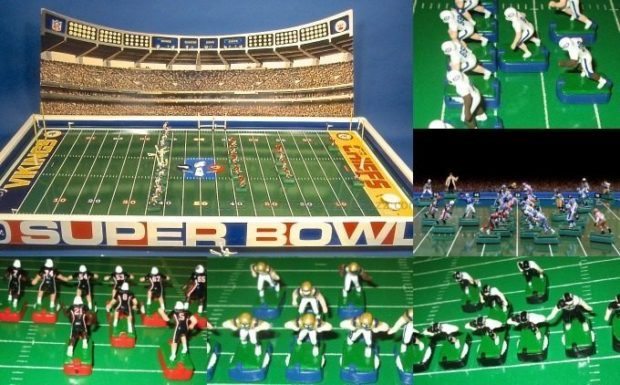For North Americans, football has been a passion for almost a century. Fans have embraced the game in all its forms whether professional, college, high school, community, Pop Warner or flag.
How about electric football then?
Electric football? Yep. You’ve never heard of it right.
Well, if you grew up in the 1950s, 60s and 70s in North America you have heard of it, and you probably played it. Or tried it at least. For many people it became, and still is, a passion.
In fact, this game has been around since the late 1940s. It was invented in 1949 by Norman Sas, owner of Tudor Games. It reached its peak popularity before the advent of video games but it is still very much alive today.
In fact, it is thriving again and one of many groups behind its resurgence is the Miniature Coaches Football Association. This dedicated group offers fans of the game, coaches, collectors and anyone else all the information about playing, collecting and organizing.
Four Teams From Europe Now Added
Recently, MCFA member Ray Sugg discovered how widespread American football had become, especially in Europe. He decided to add European teams to his collection. Based on photos he has found in AFI and other websites, he has begun creating new teams. Painted meticulously, each team evokes a bygone era in games.
New Yorker Lions (top left), Dresden Monarchs (top right), Prague Black Panthers (bottom left) and London Blitz (bottom right)
So far Sugg has managed to put together four complete teams. The attention to detail is astonishing. The Braunschweig New Yorker Lions, not surprisingly, is one of the four and he has added both home and away uniforms for them. Also included is German rivals the Dresden Monarchs as well as Great Britain’s London Blitz and the Prague Black Panthers from the Czech Republic.
Sugg vows to complete 32 European teams.
Rules of electric football
The game is played on a small metal field, with plastic players placed on the field in formations, just as in real football. The ball is a football-shaped small piece of foam or felt. When the players are set up, a switch is activated that turns on a small electric motor which causes the field to vibrate, and moves the players around the field. Players then shift around the board in a more or less predictable manner.
Each player is attached to a base, with brushes on the bottom that allow the player to move. Some bases are not adjustable while “pro” bases have a dial that can be adjusted to move players to the right or left.
How to play electric football
To find out more about this fascinating game and its history contact the MCFA, Tudor Games or The Unforgettable Buzz.
Sources: Miniature Coaches Football Association, Tudor Games, The Unforgettable Buzz, Wikipedia.

